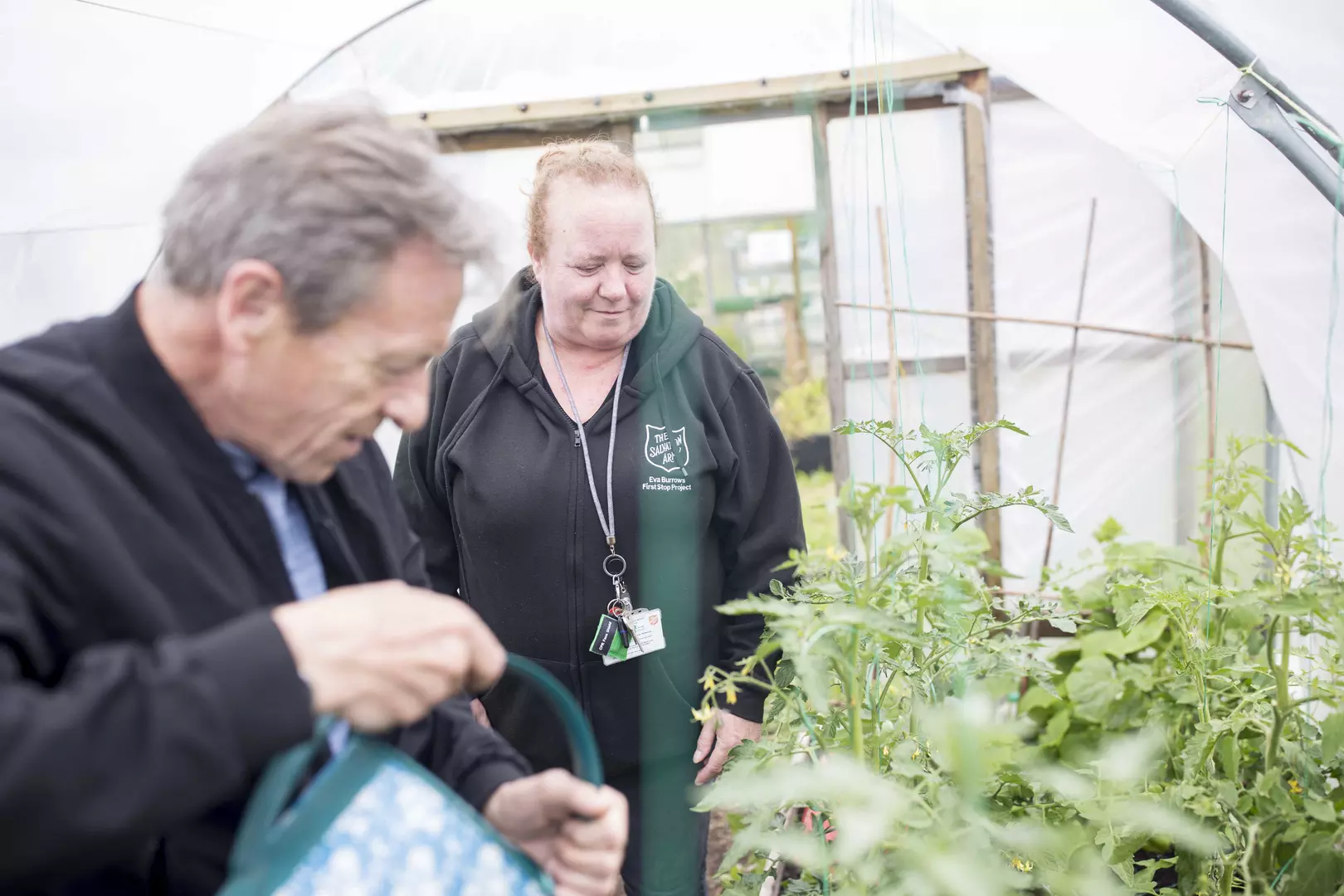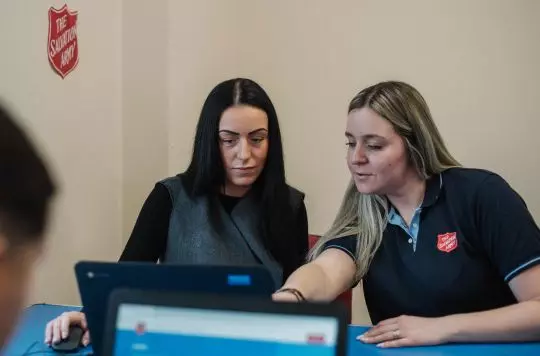Benefits of outdoors on mental health and substance use
published on 8 Jul 2024
Research by the University of Stirling and The Salvation Army has identified potential short and long-term benefits of accessing the outdoors for people experiencing mental health issues or using substances – with one participant describing the opportunity to get outdoors and take part in organised activities as “life changing”.
With high levels of drug and alcohol use in Scotland, a crisis of confidence in traditional mental health services and long waiting times for psychological therapies, research from the University of Stirling shows that time spent in many different types of greenspace could be a way to support this rising demand for support while limiting costs.
The research from The Salvation Army Centre for Addiction Services and Research (SACASR) is led by Dr Wendy Masterton, Lecturer in Criminology at the University of Stirling. Over the past two years Dr Masterton and her colleagues have established potential improvements to health and wellbeing through involvement in organised activities as diverse as walking, conservation, wild camping, landscaping, tending flowers and cultivating vegetables, among many other nature-based activities. According to Dr Masterton, even short periods spent outdoors appear to be beneficial. This is supported by an ever growing, international evidence base.
Dr Wendy Masterton said:
“Most of us are probably aware of the benefits in spending more time outdoors and in taking advantage of better weather and lighter evenings to re-connect with nature. What our research shows is why this is so beneficial, and specifically for people going through tough times due to mental health issues and/or substance use. We have interviewed people taking part in greenspace programmes, their support staff and wider health professionals and policymakers across Scotland to look at how these activities can benefit extremely vulnerable clients.
“Time in greenspace could be spent in places as diverse as parks, forests, woodland, wilderness allotments, even farms. Participants benefit from feelings of escape from day-to-day stressful situations, having space to reflect, improved physical activity, learning new skills, meeting others and reduced feelings of isolation through conversation, plus a renewed sense of purpose.”
The research carried out by Dr Masterton and the wider team underpins development of a guidance manual aimed at helping organisations design and implement new greenspace programmes which could easily run alongside other forms of traditional treatment and support for conditions such as anxiety or substance use.
Lee Ball, The Salvation Army's Director of Addictions, said:
“Substance use as a way of coping is not a lifestyle choice, it is often the only option open for some people dealing with underlying toxic stress and trauma. With long waiting times for access to mainstream mental health services this research shows that access to greenspace, alongside other forms of trauma-informed support, can have a meaningful and valuable role in recovery. By creating spaces that encourage a sense of connection with nature, these spaces help us to emotionally regulate, calm our nervous system which in turn supports reparation and healing, helping people connect to nature helps improve wellbeing.”
Dr Masterton added:
“Something that stood out in some of our recent interviews was feelings of awe when in nature and a feeling of connection to something bigger than themselves. Many people we spoke to reported this as a “spiritual feeling”. Another advantage of greenspace programmes is flexibility, and many have less strict attendance criteria than clinical options.
“Many greenspace programmes provide support to people regardless of whether or not they are currently working towards abstinence, and instead look to meet the person where they are at. Additionally, programmes often have a range of people attending. Some people may have substance use challenges, whereas others might not, and people may have a variety of different mental health challenges. This means that the programmes can be really effective for building relationships with different people and tackling stigma. This can help with initial and ongoing engagement. Greenspace programmes can also run alongside other forms of treatment.”
The Salvation Army runs greenspace programmes at its churches and services across Scotland. At the Eva Burrows 1st Stop Project in South Lanarkshire, staff and service users, in partnership with Cambuslang Allotment Group, have transformed much of the surrounding land into an area for growing fruit and vegetables.
The centre provides emergency accommodation and specialist support to individuals and families. Its gardens began with a single vegetable patch in 2014 and now include more than 30 raised beds, polytunnels, a greenhouse and a summer house.

Gerry McCluskey is a resident of Eva Burrows and says the allotments have helped improve his mental health after becoming homeless for the first time at the age of 64.
Gerry McCluskey said:
“There's a serenity in the allotments. I spend most of my time pottering around and helping people. I have taken pictures of the plots and plan to do a before and after kind of thing. I've just ordered some gardening tools. I was originally helping out an older couple who are members of the allotment group. They're teaching me the ropes. I'm watching what they're doing and learning a lot.
“I’m not much of a sleeper at night so I can sit in my room and look out at it the allotments and feel good. I’ll sit and watch the wildlife come and go. It's just amazing to see nature in action.”
Gerry is originally from East Kilbride in Scotland but moved to Canada where he lived with his wife and two children for 25 years. He moved back to Scotland but, after a disagreement with his family, ended up sleeping in hotels before declaring himself homeless. In May 2024 he was offered a place at the Eva Burrows centre, which provides supported accommodation to single men and women, and families who are homeless. With the support of the specialist care staff, Gerry is beginning to rebuild his life and is hoping to find work and a place of his own soon.
Dr Masterton hopes the research being undertaken will also help provide potential solutions to some of the barriers that people face in accessing greenspace, adding:
“We recognise access to greenspace is not equal, so that needs to be factored in when designing programmes. For many people, things like the cost, limited time, travel and mobility issues, or worries about personal safety outdoors can be barriers to accessing greenspace. During Covid, many sessions moved online. As strange as it sounds, even people who cannot leave their home to attend programmes may still benefit from hybrid sessions held on site and online.”
More information on the research is available on The Conversation via the following links:
How getting out into nature can help people with drug and alcohol problems
Further research into the effectiveness of greenspace in supporting people with poor mental health and problem substance use is ongoing.
